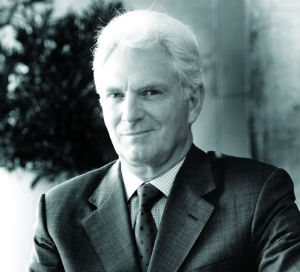CHATTANOOGA, Tenn. — In the wake of Friday’s stunning defeat among Volkswagen’s workers here, the UAW must soberly assess whether it can effectively organize any foreign-owned assembly plant in a region where organized labor has been regarded as an undesirable force for generations.
Despite Volkswagen management’s neutrality, anti-labor politicians and lobbyists succeeded in portraying the UAW as the main cause of the Detroit automakers’ decline in recent decades .
As a result, the UAW found itself portrayed as an outsider even as it complained about the outside influence of the state’s most powerful politicians.
In Tennessee, the UAW faced a workforce already happy with management and wage rates and unsure how the UAW would improve their work lives. Some workers told the Free Press uncertainty about the UAW and what it would mean drove their vote against representation.
“You’ve got a lot of people in the middle,” said Craig Snyder, 42, of Chattanooga, who voted against organizing. “You do not know what’s going to happen.”
Even some workers who voted for the UAW didn’t feel strongly about their decision. “I am in support of the union, but if it does not go that way it really does not bother me much,” Eddie Reel, 50, of Dunlap, Tenn., said after casting his vote.
RELATED: UAW may challenge Volkswagen vote results
EARLIER: VW’s Tennessee workers reject union
Workers also found themselves in the national spotlight, as they came home from work to find stories about their plant on CNN and MSNBC.
The UAW spent two years and millions of dollars courting Volkswagen employees as well as the company’s German union, IG Metall.
In the end, the UAW lost its highest profile organizing campaign in years by just 86 votes, stunning union leaders who were confident when the election began that they had support from the majority of the workers.
Volkswagen workers voted against UAW representation 712-626 after a three-day election overseen by the National Labor Relations Board that ended late Friday.
“To lose by such a close margin is very, very difficult,” said UAW President Bob King. “We will look at all of our options in the next few days.”
The defeat strikes a blow not only for the union’s Southern organizing strategy, but also for King’s legacy and his global approach to enlisting allies to help the union as it pressures manufacturers.
King has said the UAW must organize plants owned by Asian and German automakers if it is going to survive.
With Volkswagen, the union had a company that not only didn’t oppose the union, it cooperated with UAW and even allowed organizers to make presentations to employees inside the plant — a dream world scenario virtually unheard of in the U.S. these days.
Late Friday, at a news conference held at the offices of International Brotherhood of Electrical Workers 175 about 10 miles from the Volkswagen plant, King tried to downplay the significance.
“I think it’s a temporary setback,” King said.
Dennis Williams, who is secretary-treasurer of the UAW and the union’s nominee for president, said sometimes it takes more than one try to successfully organize a company.
“We’re not leaving Chattanooga,” said Williams, who likely will be elected to a four-year term as president in June. “It took seven years to organize Ford, and I will be around for at least another five.”
Outside influence
Williams said the union began to notice that support was declining after state legislators said tax incentives for a possible expansion of Volkswagen’s plant would be in jeopardy if workers voted in favor of union representation.
The support eroded more Tuesday when Sen. Bob Corker, R-Tenn., who helped to recruit Volkswagen to Tennessee, said he was offended by the UAW’s label on him as an outsider. He painted the UAW as a failed organization from Detroit, during a half-hour press conference at his downtown Chattanooga senate office.
“To call me an outsider … there is nothing further from the truth,” Corker said. “How many companies from South Korea, or Japan, or Germany, how many of them made a stop in Detroit to locate there? None. Not a one. And it is because of the culture that the UAW has contributed to.”
Corker also suggested on Wednesday that Volkswagen will only decide to expand its plant in Chattanooga to build a new mid-size SUV if workers rejected union representation — a fact that Volkswagen executives have consistently said would not play a role in the company’s decision.
On Saturday, Corker held another news conference where he said the state of Tennessee has “re-engaged” negotiations with Volkswagen over locating production for a new sport utility vehicle in Chattanooga.
“We have conversations set up for later this week by telephone (with Volkswagen) and I know the state has re-engaged,” Corker said. “I am very hopeful based on assurances I have been given that will work out.”
In Chattanooga, many view the UAW — not Corker — as the outsider, even though the UAW represents workers at a General Motors plant in Spring Hill, Tenn., two hours northwest of the city.
“The UAW is from up north,” said Lee Person, 22, of Chattanooga. “I think the UAW just wanted to move down south.”
Person, a graduate student at University of Tennessee at Chattanooga who also works as a desk clerk at a hotel near the plant, said most people he knows did not want the UAW to gain an additional foothold in the region.
In addition to Corker and other politicians, other political groups with ties to anti-tax advocate Grover Norquist purchased billboards in Chattanooga that linked the UAW to support for President Barack Obama and to the downfall of Detroit.
Challenge the election?
“I think the close vote does give the opportunity for the UAW to challenge the election,” said Arthur Wheaton, a professor of law at Cornell University.
However, Wheaton said an election challenge would be easier if it could be shown that Corker was speaking on behalf of Volkswagen.
And Ann Hodges, a professor of labor and employment law at the University of Richmond, said challenging the election likely would be difficult because the legal standard for proving that there was interference is high.
“They essentially have to have made a free and fair election impossible to conduct,” Hodges said.
Throughout the election Volkswagen was officially neutral but clearly was open to working with the UAW. Virtually all of Volkswagen’s plants around the world are unionized and have a European-style works council, which are joint management-employee boards that make decisions on work rules and other issues together.
They are popular in Europe, but in the U.S., employees on the councils must have union representation. Even so, on Friday, Volkswagen said it still wants to find a way for its workers to form a council.
“They have spoken and Volkswagen will respect the decision of the majority. But they have not made a decision that they are against a works council,” said Frank Fischer, CEO of Volkswagen Chattanooga. “Our board remains determined to find the best method for establishing a works council that serves our employees interests.”
Another factor that made it difficult for the UAW to woo workers is the way it treats its employees and the wages and benefits it provides. Historically, labor unions are more likely to win elections when workers are dissatisfied with how they are being treated by the company or believe they are underpaid.
At Volkswagen, workers who began working for the company when the Chattanooga plant opened in 2011 make about $20 per hour. That’s essentially the same rate of pay that workers who were hired by General Motors, Ford or Chrysler after 2009 make per hour.
“It’s about having a voice,” Reel said. “It’s definitely not about wages. The wages here are more than fair.”





